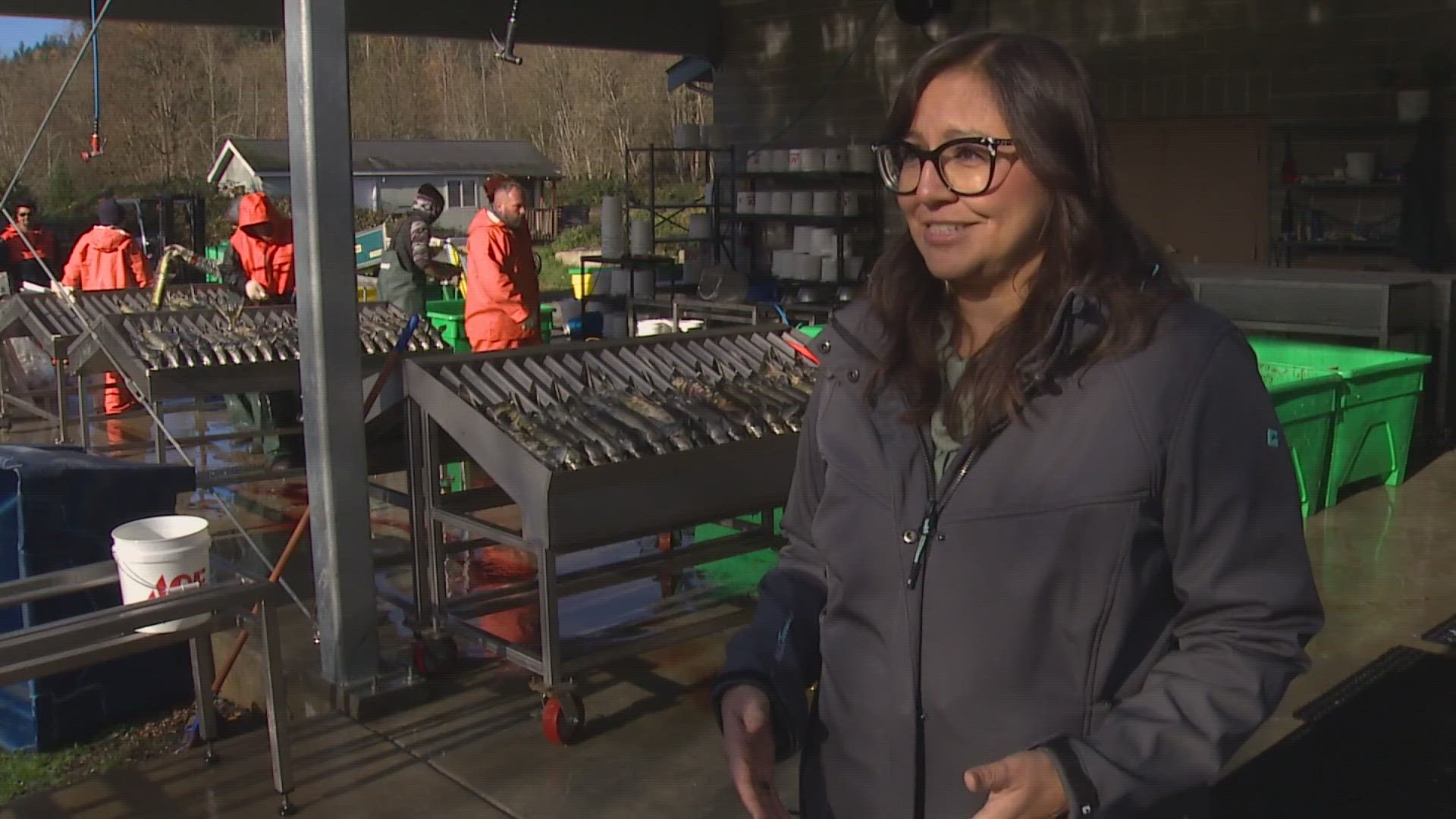AUBURN, Wash. — At Keta Creek Fish Hatchery, the focus is making sure none of the salmon are going to waste — and that the food can be provided to kids in local schools who need it most.
“All of them are going to be used,” said Muckleshoot Tribal Councilmember Louie Ungaro about the salmon.
Ungaro said it's critical to consider what's at stake. According to Feeding America’s 2021 report, 197,550 children in Washington were dealing with food insecurity. That represents nearly 12% of youth in the state.
"It is sad. It is sad in America that we have that," said Ungaro. "It is sad that we have that in the state of Washington."
Another Tribal member said while there is sadness for the kids, there's also a sense of responsibility.
"I just feel bad for the kids that have to experience something like that. We should be able to do better for them,” said Muckleshoot Tribal Member Leeroy Courville Junior.
Valerie Segrest is also a Muckleshoot Tribal member, and she who owns Tahoma Peak Solutions, a communications company.
"We put over a billion dollars into this system to see these fish return,” said Segrest. "I knew that all these salmon were coming back. Our fishermen were having really successful runs."
Segrest said she wanted to see that food reach the people who needed it most. That led to a partnership between the Muckleshoot Tribe and Seattle Public Schools, a district that was already on a mission to serve locally sourced food in school meals.
"It was really a beautiful thing to see that come together,” said Ungaro.
Ungaro was there to witness the moment in May. The collaboration between the school district and the Muckleshoot Tribe led to the purchase of 3,000 pounds of sustainable, local salmon served to students.
"To be able to harvest that and feed people right here locally is what is going to continue to strengthen a food system, and keep it secure and rich and build a strong economy here. That is what it is going to take to really address hunger. The answers lie here in tribal food communities,” said Segrest.
Ungaro said the partnership adds to the longevity of both the Tribe and the salmon.
"We are going to be here another hundred generations, and hopefully our salmon will be too,” said Ungaro.

